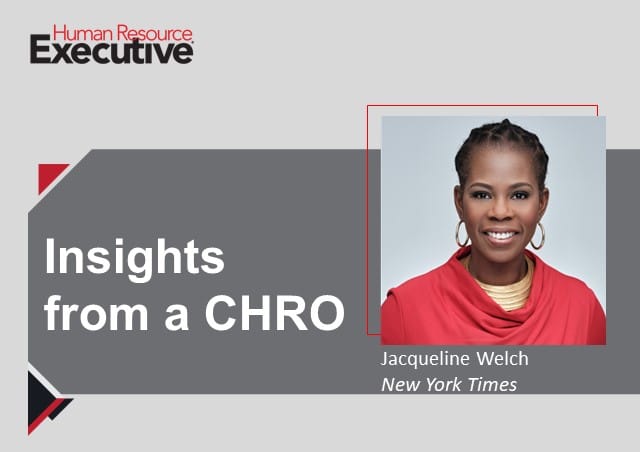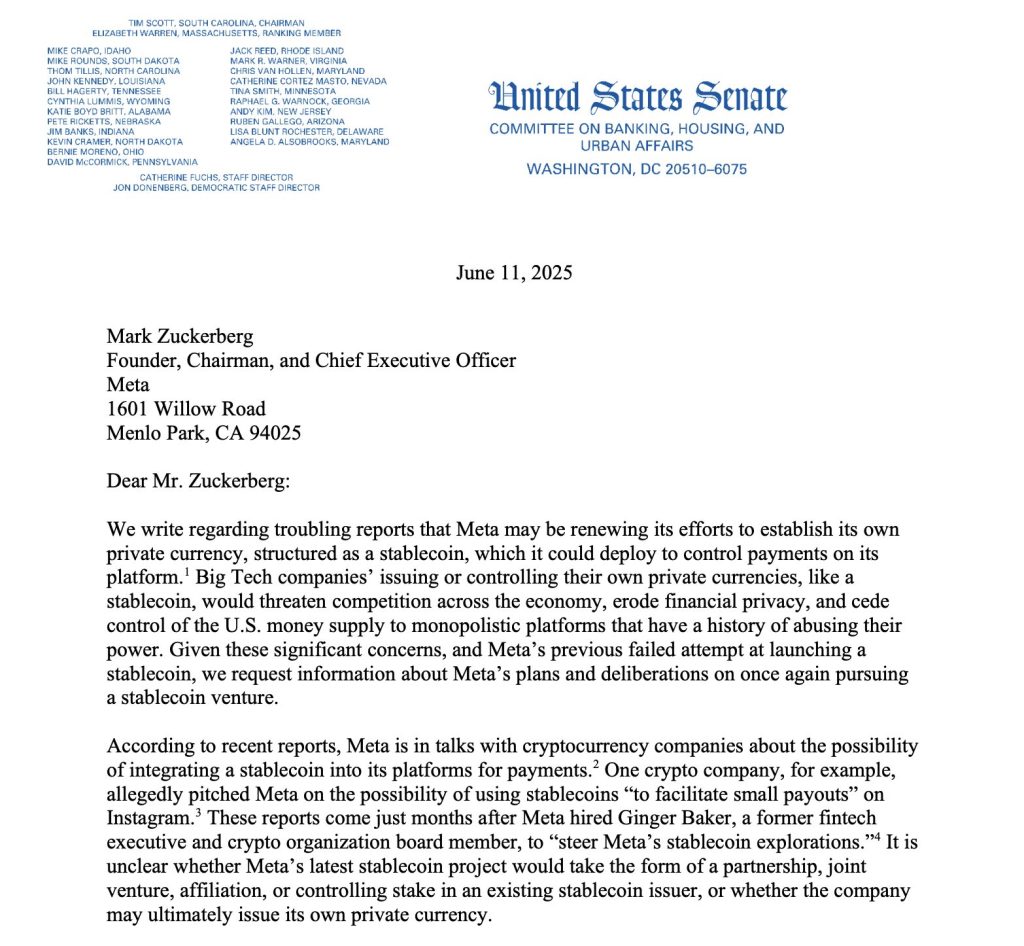At a ceremony earlier this month in New York City, Fellows of the National Academy of Human Resources welcomed two new leaders to their ranks: Cornell University’s Christopher Collins and The New York Times’ Jacqueline Welch.
Welch, who became executive vice president and CHRO of the Times in 2021, told HRE the NAHR induction was “thrilling,” particularly because Fellows are selected by their peers.
Though she calls the recognition “surreal and humbling and surprising,” it came after a career of HR success: Before the Times, she was CHRO and chief diversity officer at Freddie Mac, senior vice president of HR at Turner Broadcasting System and vice president of employee and organizational effectiveness at Rock-Tenn Co.
In 2020, she was named to Savoy Magazine’s Most Influential Black Executives in Corporate America list. She was also recognized by the National Association for Multi-Ethnicity in Communications, Atlanta Woman Magazine, Business to Business Magazine and Executive Women of Goizueta.
Welch recently shared with HRE how she uses her HR experience to help transform the people function at The New York Times—and what HR challenges she’s gearing up to face in the coming months.
HRE: How different is The New York Times’ HR organization today than when you joined in 2021?
Welch: For context, when I joined the Times, one of the reasons I was recruited was to continue the good work of a small but mighty team. One of the things that’s ironic in many ways is that the Times as an institution is quite literally hundreds of years old, but the HR function is not.
I inherited an amazing team—lovely people who really laid a good foundation for world-class HR. And so, my mandate broadly was to continue that good work, build on it and build the team to go beyond the transactional. I would describe the team as continuing to evolve and getting increasingly more sophisticated in terms of going beyond the transactional HR and really being a strategic business partner, which we all aspire to in our organizations.
[I joined] in what was arguably the most divisive political environment this country has seen in a long time, plus it was in the wake of the murder of George Floyd—and the scourge that was COVID. This really required our team—and all HR teams, for that matter—to get smart fast on a bunch of things, all at the same time. And these were things that were new, and certainly new in combination with each other. So, I think as a function, my team went above and beyond what was reasonably expected.
HRE: How much of that work has focused on culture?
Welch: At the Times, you have two entities. I like to talk about this in terms of pictures and frames. The picture is the newsroom: the Pulitzer Prize-winning journalism. Around that journalism is a frame that, over time, is getting far more ornate and eye-catching, in terms of the business of The New York Times. Over time, The New York Times is increasingly becoming more and more of a part of people’s daily lives. Yes, they want to read the journalism but now they’re also getting sports coverage at the depth and breadth they hadn’t before we acquired The Athletic a year ago. They’re getting cooking, they’re getting games. They’re getting Wirecutter; I can’t tell you the last product I purchased that I didn’t consult Wirecutter first about. So, there are two cultures: the journalist culture and then this business culture.
My boss coined a phrase to describe how we’re thinking about culture: “the immutables.” I think it’s incumbent on every organization to be firm and clear in defining their immutables. At the Times, our primary immutable across the enterprise is independence. No one in the newsroom or across the business would ever knowingly do something to compromise the perception of the independence of our journalism; that’s an immutable. That is a distinguishing factor of our culture.
I’m fortunate to work for a mission-driven organization where we can clearly say that journalism is our cause, is our mission, and that gives us clarity. Our job then encompasses being unequivocal in how we operate; you won’t see the Times taking positions necessarily on public issues. It’s not that people don’t have opinions, it’s that the institution works very hard to maintain independence—and having opinions outside of the reporting would rightly put into question that independence.
HRE: What is the greatest challenge coming down the pike for HR leaders in 2024?
Welch: I have no other word to describe it but anguish—what’s happening now in the Middle East, especially in Israel and Gaza, is anguishing. It was surprising what happened and equally surprising is the response. And it’s not yet clear what the resolution looks like. Even the most remotely removed person is watching these events unfold with a certain level of anguish and uncertainty. As employers, we have to be mindful of that.
It’s happening in combination with what Putin thought would be an invasion and what is now a two-year war. And then there are always question marks with what’s going to happen in China and Korea. The global theater is so dynamic right now and, for people paying attention, it’s a little bit anxiety-inducing.
And I still think, generally speaking, we haven’t yet fully processed the aftermath of the pandemic—though I’m hesitant to call it the “aftermath” since the virus itself hasn’t confirmed it’s done. I do think that mental health can’t be an overfocus for employees. And even if employees are “OK,” they may be living in households with partners and children who may not be OK. And that’s going to impact their ability to show up for work.
Also, for years we’ve talked about the multiple generations being in the workplace as if it was a far-off thing—but we’re now living it. Older people—and I’m saying that in quotation marks because I’m acutely aware that I’m 53, much to my surprise—intend to work longer, and organizations can only grow so much to accommodate people’s desire for more responsibility, upward mobility. There’s a pressure point in terms of talent and how we manage that inside an organization. We need to be really real that we have these multiple generations in our workforces and look at what we are going to do about it.
HRE: And where do you see the debate about return-to-office heading in 2024?
Welch: From the very beginning, more often than not, I think we’ve been having the wrong conversations. I’ve spent a lot of time talking to people inside the Times and elsewhere, and what I hear more than “hybrid work” is “I want flexibility.” “I want to work 10 to 3 to avoid traffic on both ends” or “I need to work 12 to 8 because of my family situation.” Somewhere along the way, I feel like we’ve conflated things and made it binary: in the office versus not in the office. But one of the things I’m doing in my corner of the world is listening deeply and not giving people binary choices. Because I don’t think that’s the central issue.
Credit: Source link











